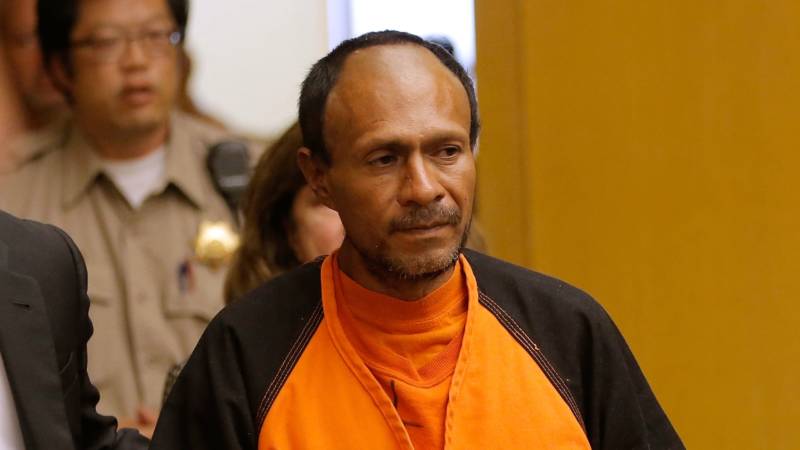Garcia-Zarate said he unwittingly picked up the gun wrapped in a T-shirt, and it fired accidentally. The bullet ricocheted off a concrete walkway and struck Steinle, who was with her father and a family friend.
The weapon used in the shooting belonged to a U.S. Bureau of Land Management ranger who reported it stolen from his car parked in San Francisco.
Defense lawyers argued on appeal that because Garcia-Zarate held the gun for such a short moment, he couldn’t be convicted of illegal gun possession.
Prosecutors argued that the jury instruction lapse was harmless because Garcia-Zarate admitted firing the gun and experts said he couldn’t do so without pulling the trigger.
The court disagreed, saying the jury’s verdict showed they rejected the prosecution theory that the shooting was intentional or even negligent and they had asked the judge to define possession and whether there was a time requirement for possession.
“These questions go to the heart of the momentary possession defense,” Justice Sandra Margulies wrote in the 3-0 decision. “The fact the jury asked whether there was a time requirement for possession suggests jurors were wrestling with how long defendant had the gun.”
Public defender Matt Gonzalez, who argued the case before the jury, said the improper instruction meant that Garcia-Zarate did not get a fair trial.
“This really wasn’t a close call. We were entitled to the instruction, and we should’ve had it. We thought that Mr. Garcia-Zarate would have been acquitted had the jury been instructed this way, so this is very gratifying for us,” he said.
He picked up an object not knowing what it was, it fired, and he threw it to the ground when it did fire.”
Garcia-Zarate, who was facing deportation proceedings at the time of his arrest in the killing, had been released by county jail officials three months before the tragic event.
Immigration and Customs Enforcement officials had requested that the Sheriff’s Department inform them of his release date and hold him until they could pick him up. But San Francisco’s sanctuary city policy barred local law enforcement officials from cooperating with most federal immigration investigations.
Trump referred to the shooting on the campaign trail as he railed on sanctuary cities and argued for tougher immigration policies.
